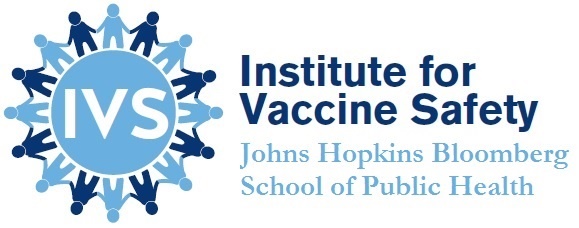Do Vaccines Cause Systemic Lupus Erythematosus?
Conclusion | Epidemiological Evidence | Proposed Biological Mechanism | Archives | References
Conclusion
Vaccines currently routinely recommended to the general population in the U.S. have not been shown to cause systemic lupus erythematosus (SLE).
Epidemiological Evidence
The 2012 report by the Institute of Medicine (IOM) [1], now called the National Academy of Medicine (NAM), described four studies assessing exacerbation of SLE and influenza vaccine [2-5] and one study assessing onset of SLE and hepatitis B vaccine [6]; however, these studies did not provide convincing evidence due to a lack of validity and precision. The IOM found no relevant studies of quality in the literature assessing either exacerbation of SLE and hepatitis B vaccine or onset of SLE and influenza vaccine [1].
Two cohort studies published since the 2012 IOM report, a retrospective cohort of people over 60 years of age who received the herpes zoster vaccine (Zostavax®) [7] and a prospective cohort of women receiving quadrivalent HPV vaccine (Gardasil®) [8], found no association between vaccination and SLE. A controlled trial in Brazil randomized 54 SLE patients to receive either varicella vaccine or placebo and vaccinated 28 healthy matched controls, and found no difference in adverse event frequency between groups [9]. A 2017 clinical trial found that quadrivalent HPV vaccine was safe and well tolerated in patients with SLE [10]. Two 2016 meta-analyses found no difference in adverse event rates after influenza vaccination between SLE patients and healthy controls [11, 12]. A 2015 systematic review did not find an increased risk of SLE exacerbation following HPV vaccination [13]. A 2016 meta-analysis found that influenza and pneumococcal vaccines had no impact on SLE disease activity [14].
Proposed Biological Mechanism
Proposed biological mechanism: There is evidence that natural infection may exacerbate symptoms in SLE patients [15]. Inflammation is present both during SLE exacerbations and during immune responses to infection or vaccination. One possible mechanism is activation of the complement system, in which a cascade of proteolysis and successive release of cytokines functions to amplify the immune response but can damage host cells if not properly regulated. Other mechanisms that could contribute to onset or exacerbation of SLE include autoantibodies or T cells, and formation of immune complexes.
The 2012 IOM report described some experimental evidence and one case of SLE after hepatitis B vaccination [16]; however, the IOM concluded that this mechanistic evidence was weak. The IOM also concluded that there was no mechanistic evidence for an association between SLE and influenza vaccine, as the publications reviewed provided little evidence beyond a temporal association [1].
References
1. Institute of Medicine. In: Stratton K, Ford A, Rusch E, Clayton EW, eds. Adverse Effects of Vaccines: Evidence and Causality. Washington (DC): National Academies Press (US); 2012.
2. Abu-Shakra M, Zalmanson S, Neumann L, Flusser D, Sukenik S, Buskila D. Influenza virus vaccination of patients with systemic lupus erythematosus: effects on disease activity. The Journal of rheumatology 2000;27:1681-5.
3. Del Porto F, Lagana B, Biselli R, et al. Influenza vaccine administration in patients with systemic lupus erythematosus and rheumatoid arthritis. Safety and immunogenicity. Vaccine 2006;24:3217-23.
4. Stojanovich L. Influenza vaccination of patients with systemic lupus erythematosus (SLE) and rheumatoid arthritis (RA). Clin Dev Immunol 2006;13:373-5.
5. Williams GW, Steinberg AD, Reinertsen JL, Klassen LW, Decker JL, Dolin R. Influenza immunization in systemic lupus eruthematosus. A double-blind trial. Ann Intern Med 1978;88:729-34.
6. Cooper GS, Dooley MA, Treadwell EL, St Clair EW, Gilkeson GS. Risk factors for development of systemic lupus erythematosus: allergies, infections, and family history. J Clin Epidemiol 2002;55:982-9.
7. Baxter R, Tran TN, Hansen J, et al. Safety of Zostavax--a cohort study in a managed care organization. Vaccine 2012;30:6636-41.
8. Chao C, Klein NP, Velicer CM, et al. Surveillance of autoimmune conditions following routine use of quadrivalent human papillomavirus vaccine. J Intern Med 2012;271:193-203.
9. Barbosa CM, Terreri MT, Rosario PO, de Moraes-Pinto MI, Silva CA, Hilario MO. Immune response and tolerability of varicella vaccine in children and adolescents with systemic lupus erythematosus previously exposed to varicella-zoster virus. Clin Exp Rheumatol 2012;30:791-8.
10. Dhar JP, et al. The safety and immunogenicity of Quadrivalent HPV (qHPV) vaccine in systemic lupus erythematosus. Vaccine 2017;35(20):2642-2646.
11. Huang Y, et al. Is Systemic Lupus Erythematosus Associated With a Declined Immunogenicity and Poor Safety of Influenza Vaccination?: A Systematic Review and Meta-Analysis. Medicine (Baltimore) 2016;95(19):e3637.
12. Liao Z, et al. Immunogenicity and Safety of Influenza Vaccination in Systemic Lupus Erythematosus Patients Compared with Healthy Controls: A Meta-Analysis. PLoS One 2016;11(2):e0147856.
13. Pellegrino P, Radice S, Clementi E. Immunogenicity and safety of the human papillomavirus vaccine in patients with autoimmune diseases: A systematic review. Vaccine 2015;33(30):3444-9.
14. Puges M, et al. Immunogenicity and impact on disease activity of influenza and pneumococcal vaccines in systemic lupus erythematosus: a systematic literature review and meta-analysis. Rheumatology (Oxford) 2016;55(9):1664-72.
15. Doria A, Canova M, Tonon M, et al. Infections as triggers and complications of systemic lupus erythematosus. Autoimmun Rev 2008;8:24-8.
16. Poirriez J. A preliminary experiment of absorption of antinuclear antibodies by the hepatitis B vaccine components, in a case of neurolupus. Vaccine 2004;22:3166-8.


